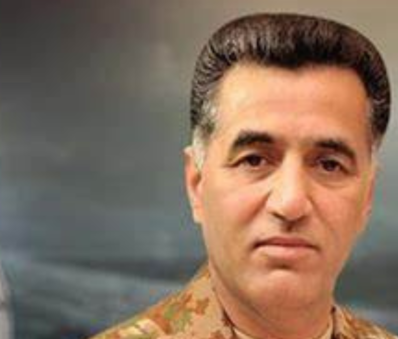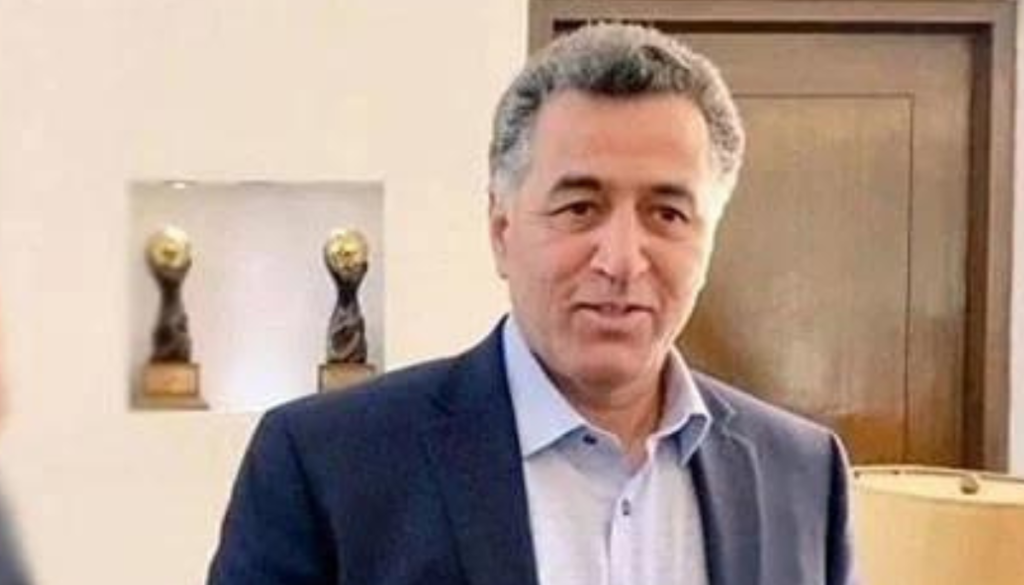Why Ex-ISI Chief Faiz Hameed Arrested? Imran Khan Calls It an “Internal Issue” of the Pakistan Army.
The recent arrest of former ISI Chief Faiz Hameed has sent shockwaves across Pakistan and beyond. As one of the most influential figures in the military establishment, Hameed’s detainment has sparked intense debate and speculation about the inner workings of Pakistan’s powerful military. Former Prime Minister Imran Khan, a close ally of Hameed during his tenure, has weighed in on the matter, calling it an “internal issue” of the Pakistan Army. This blog delves into the complexities surrounding this development, exploring the implications for Pakistan’s political landscape, civil-military relations, and regional stability.
Who is Faiz Hameed?
Faiz Hameed is a name synonymous with power and influence within Pakistan’s military establishment. A three-star general, Hameed served as the Director-General of the Inter-Services Intelligence (ISI), Pakistan’s premier intelligence agency, from 2019 to 2021. Known for his strategic acumen and close ties with the political leadership, Hameed played a crucial role in shaping Pakistan’s foreign and domestic policies during his tenure.
His tenure as ISI Chief was marked by significant developments, including the facilitation of peace talks between the United States and the Taliban, and the handling of sensitive internal security matters. Hameed’s influence extended beyond his formal role, with many considering him a key player in maintaining the balance of power within Pakistan’s often tumultuous political environment.
The Arrest: A Sudden and Shocking Development
The news of Faiz Hameed’s arrest came as a surprise to many, given his standing within the military and his close connections with Pakistan’s top leadership. While the exact charges against Hameed have not been publicly disclosed, sources indicate that his arrest may be linked to issues of internal dissent within the military, financial irregularities, or alleged involvement in political machinations.
The arrest has raised several questions: What led to this dramatic action against a man who was once one of the most powerful figures in Pakistan? Is this a sign of deeper rifts within the military establishment, or is it part of a broader effort to assert control and discipline within the ranks?
Former Prime Minister Imran Khan, who had a close working relationship with Faiz Hameed during his time in office, has responded to the arrest by labeling it an “internal issue” of the Pakistan Army. Khan’s statement is notable for its measured tone, as he refrained from either condemning or endorsing the arrest. Instead, he emphasized that such matters should be handled within the military’s own structures and processes.
Khan’s response reflects his complex relationship with the military, particularly after his ouster from power in April 2022. While he has been critical of the military’s role in his removal, he has also sought to maintain a certain level of deference to the institution, recognizing its immense influence in Pakistan’s political landscape. By calling Hameed’s arrest an “internal issue,” Khan appears to be signaling that he does not wish to escalate tensions with the military, while also subtly distancing himself from the controversy.

The arrest of Faiz Hameed could be indicative of a larger power struggle within Pakistan’s military establishment. Over the years, the military has played a pivotal role in the country’s governance, often acting as a “kingmaker” in political affairs. The ISI, in particular, has been instrumental in shaping political narratives and outcomes in Pakistan.
Hameed’s arrest may be seen as a move by the current military leadership to assert control and discipline within its ranks, particularly in light of the recent political upheavals in the country. It could also be a reflection of internal divisions within the military, with different factions vying for influence and control. The military’s relationship with the civilian government, particularly under Imran Khan’s leadership, has been complex, with periods of cooperation as well as tension. The arrest could be a signal that the military is reasserting its dominance in the face of growing political instability.
Civil-Military Relations: A Delicate Balance
The arrest of a high-ranking military officer like Faiz Hameed inevitably raises questions about the state of civil-military relations in Pakistan. The country has a long history of military involvement in politics, with the military often seen as the ultimate arbiter of power. However, this dynamic has also led to tensions between civilian governments and the military, particularly when the two sides have conflicting interests.
Imran Khan’s tenure as Prime Minister was marked by a close working relationship with the military, particularly during Faiz Hameed’s time as ISI Chief. However, this relationship became increasingly strained towards the end of Khan’s tenure, culminating in his ouster from power. The arrest of Hameed could be seen as part of a broader effort by the military to reassert its authority and to prevent any potential challenges from within its ranks.
For the civilian government, navigating this complex relationship is a delicate task. On one hand, there is a need to maintain good relations with the military to ensure stability and security. On the other hand, there is also a need to assert civilian control over the military to ensure democratic governance. The arrest of Hameed and the response from political leaders like Imran Khan highlight the ongoing challenges in maintaining this balance.
Regional implications of Faiz Hameed arrest
Public Reaction: A Nation on Edge The arrest of Faiz Hameed has sparked a wide range of reactions within Pakistan, with many expressing shock and concern over the development. For a country that has witnessed numerous political and military upheavals, the arrest of a figure as prominent as Hameed is seen as a significant event with potentially far-reaching consequences.
On social media, the arrest has been a trending topic, with hashtags like #FaizHameedArrest and #PakistanArmy generating significant discussion. While some have praised the military for taking action against a high-ranking officer, others have expressed concerns about the potential for further instability in the country. The arrest has also reignited debates about the role of the military in Pakistan’s politics, with many calling for greater transparency and accountability within the institution.
Legal Aspects: The Process Ahead
The legal process surrounding Faiz Hameed’s arrest will be closely watched, particularly given his high-profile status and the sensitive nature of the charges against him. Under Pakistan’s military laws, the arrest of a senior officer like Hameed would typically be handled within the military’s own legal system, with proceedings conducted by a court martial.
The transparency of this process will be critical in maintaining public trust, particularly given the concerns about potential political motivations behind the arrest. If the process is seen as fair and impartial, it could help to mitigate some of the concerns about the arrest and its implications for Pakistan’s military and political landscape. However, if the process is seen as opaque or biased, it could further erode public confidence in the military and exacerbate existing tensions.
Future Implications: What Lies Ahead?
- The arrest of Faiz Hameed is likely to have significant implications for Pakistan’s political and military landscape in the months and years to come. In the short term, the arrest could lead to further instability, particularly if it is seen as part of a broader power struggle within the military or between the military and civilian government.
- In the longer term, the arrest could also lead to changes in the way the military is perceived and operates in Pakistan. If the arrest is part of a broader effort to assert control and discipline within the military, it could lead to greater accountability and transparency within the institution. However, if the arrest is seen as politically motivated or part of an internal power struggle, it could lead to further divisions within the military and between the military and civilian government.
- For Pakistan’s civilian leadership, navigating the fallout from Hameed’s arrest will be a critical challenge. Maintaining stability and ensuring that the military remains a trusted and respected institution will be key to avoiding further political and social unrest. The response from the international community, particularly Pakistan’s key allies, will also be important in shaping the country’s future direction.



